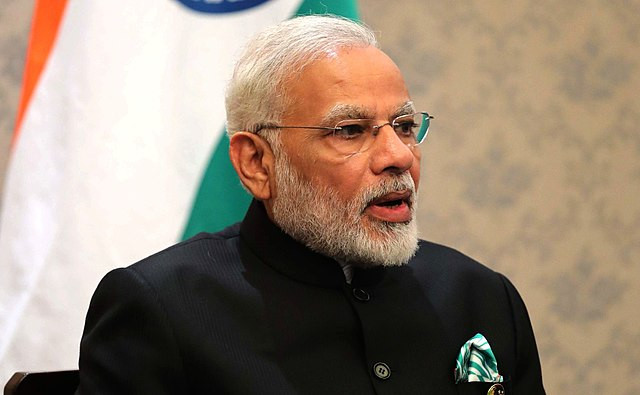Indian Prime Minister Narendra Modi arrived in Kyiv on Friday for talks with Ukrainian President Volodymyr Zelensky. This visit, the first by an Indian leader to Ukraine since the country gained independence, comes just weeks after Modi's meeting with Russian President Vladimir Putin in Moscow-a visit that drew criticism from Kyiv amidst the ongoing conflict between Russia and Ukraine.
Modi's trip to Ukraine is seen as a crucial moment in India's foreign policy, reflecting its delicate balancing act between maintaining its longstanding ties with Russia and engaging with global efforts to address the conflict in Ukraine. New Delhi has consistently called for a ceasefire and a peaceful resolution to the war but has refrained from directly condemning Russia's actions. This cautious stance is largely influenced by India's reliance on Russian arms and its strategic relationship with Moscow, especially in the context of countering China's growing influence in the region.
The visit comes at a pivotal time in the two-and-a-half-year war, as Ukrainian forces recently launched a significant offensive into Russian-held territories, putting pressure on Moscow to respond. During his visit, Modi is expected to discuss a wide range of issues with Zelensky, including trade, infrastructure, and defense cooperation. The Indian leader's arrival in Kyiv, just a day before Ukraine's Independence Day, also underscores the symbolic importance of this visit.
Zelensky and other Ukrainian officials are keen to expand international support for their peace formula, which hinges on the withdrawal of Russian troops from Ukrainian territory. With the U.S. presidential election on the horizon, there are growing concerns in Kyiv that American support could wane if a more isolationist administration comes to power. As a result, Ukraine is increasingly looking to countries like India and China, which maintain close ties with Russia, to influence Moscow's stance on the conflict.
However, while India attended a Kyiv-backed international peace summit in Switzerland earlier this year, it stopped short of endorsing the gathering's final communique. Instead, India has emphasized the need for direct and practical engagement between the warring parties to achieve a resolution. Modi's visit to Ukraine could be seen as an effort to strike a more neutral stance and possibly play a mediating role in the ongoing conflict.
Modi's engagement with Zelensky also comes in the wake of criticism from the Ukrainian leader over Modi's recent meeting with Putin in Moscow. That meeting, which coincided with a Russian missile strike on several Ukrainian cities, including a deadly attack on a children's hospital, was condemned by Zelensky as a "devastating blow to peace efforts." The Ukrainian president expressed disappointment at seeing the leader of the world's largest democracy embrace what he described as "the world's most bloody criminal."
Despite the tensions, Modi's visit to Kyiv was marked by moments of solemnity and respect. The Indian prime minister and Zelensky visited a memorial dedicated to the hundreds of Ukrainian children who have lost their lives in the war. In a gesture of empathy, Modi laid teddy bears at the memorial and observed a moment of silence, later expressing his sorrow for the families affected by the conflict. "Conflict is particularly devastating for young children," Modi wrote on social media, adding that his heart goes out to those who have lost loved ones.
The visit also saw Modi meeting with representatives of the Indian diaspora in Ukraine, where he was greeted with chants of "Modi, Modi, Modi." The Indian leader paid tribute at the Mahatma Gandhi Monument in Kyiv, further symbolizing his commitment to peace and non-violence.
Ukrainian officials, including the chief of Ukraine's Presidential Office, Andriy Yermak, hailed Modi's visit as "historic" and expressed hope that India could play a role in facilitating a just peace. "We respect India as a very big democracy in the world and a powerful country," Yermak said, emphasizing the need for global recognition of the aggressor in the conflict.




